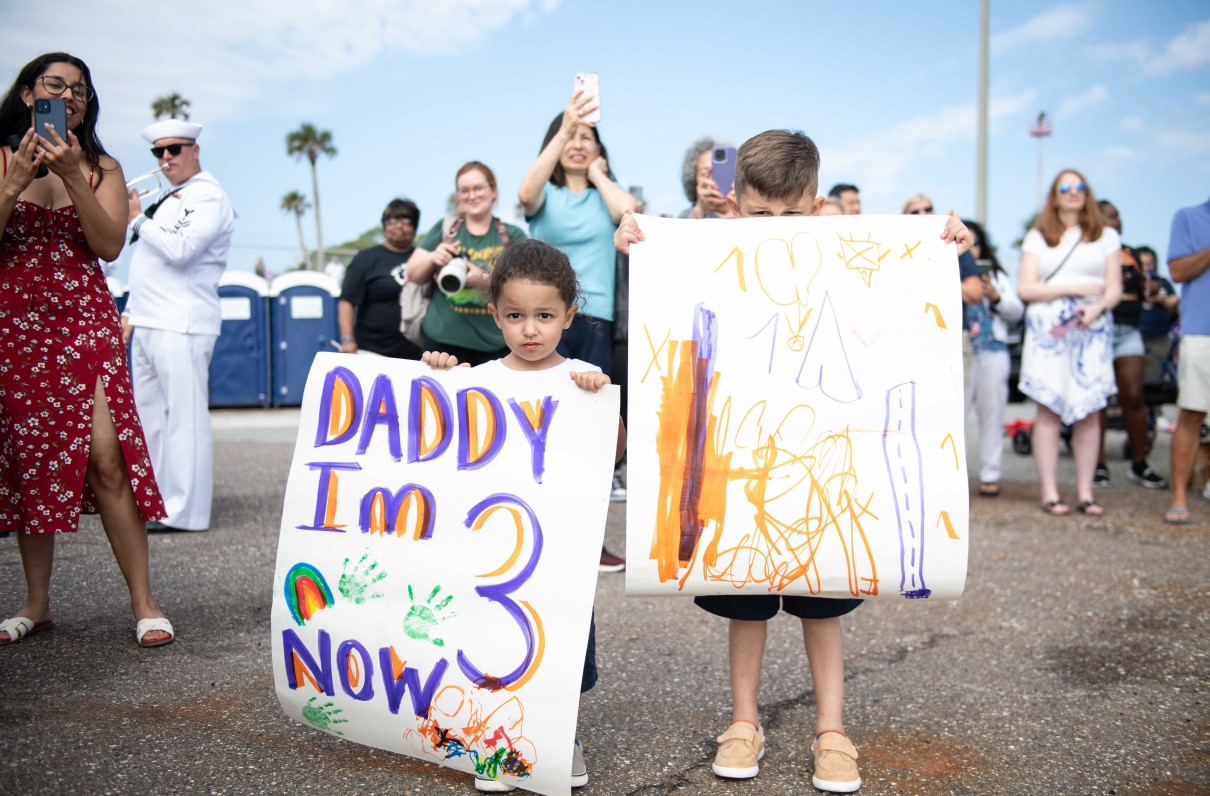The House version of the FY 2025 National Defense Authorization Act (NDAA), which passed the chamber June 14, includes several important provisions aimed at supporting military families.
Recognizing the unique challenges of military life, the NDAA emphasizes employment opportunities, financial security, and child care options. These initiatives reflect a commitment to enhancing the quality of life for military families, acknowledging their critical role in the overall readiness and resilience of the armed forces.
Here’s a look at some of the provisions.
Military Spouse Employment
Flexibilities for Federal Employees Who Are Military Spouses: The bill would introduce enhanced employment flexibilities for military spouses who are employed by the federal government – a significant provision designed to help spouses maintain employment despite frequent relocations. Measures include the expansion of telework/remote work and standardization of leave without pay status.
Making the Military Spouse Career Accelerator Pilot Permanent: The Military Spouse Career Accelerator Pilot program has proven instrumental in providing career development and training for military spouses. It offers paid fellowships with federal agencies and private-sector employers, giving spouses the chance to gain valuable work experience and build professional networks. The permanency of this program ensures ongoing support and stability for career-minded military spouses.
[FREE DOWNLOAD: MOAA's Military Spouse Employment Guide]
Increased Child Care Options for Spouses Seeking Employment: These spouses need access to affordable and high-quality child care services. The House NDAA seeks to expand child care from 90 to 180 days for spouses seeking work, a move which would help alleviate one of their primary barriers to employment.
Financial Security
Improvements to the Basic Needs Allowance (BNA): Enhancements would ensure more families are eligible for this critical financial support, which is designed to help servicemembers whose household income falls below a certain threshold.
Evaluation of Basic Allowance for Subsistence (BAS): The NDAA would mandate a thorough evaluation of BAS, which provides servicemembers with funds for food. This evaluation aims to ensure the allowance adequately reflects the current cost of living and meets nutritional needs. It also requires recommendations on potential BAS adjustments, accounting for number of dependents.
[RELATED: ‘Solutions’ to Address Military Food Insecurity Fall Short]
Implementation of Increase for Family Separation Allowance (FSA): The FY 2024 NDAA authorized an increase in FSA, an allowance designed to support military families separated due to deployment or other military obligations. Despite DoD’s enhanced focus on “Taking Care of Our People,” the department has yet to implement any such increase. Two amendments to the FY 2025 House NDAA would direct DoD to act on this long-overdue issue.
Child Care
Competitive Pay for Child Care Providers: In response to the nationwide demand for child care services, the FY 2025 NDAA includes provisions to offer competitive pay for child care providers. By ensuring child care workers are fairly compensated, DoD can attract and retain qualified providers, ultimately improving the quality and availability of services for military families.
[RELATED: Military Must Track Why It Struggles to Retain Child Care Workers, GAO Says]
Expansion of In-Home Child Care Pilot: The House NDAA would add four installations to this pilot program, which offers military families more flexible and personalized child care options: Fort Drum, N.Y.; Holloman Air Force Base, N.M.; and Naval Air Station Lemoore and Marine Corps Air Ground Combat Center Twentynine Palms in California.
Enhanced Child Abuse Prevention and Safety at Military Child Development Centers: The bill would increase training for staff and improve notification procedures in the event of an incident of abuse or harm.
[RELATED: DoD Inspector General to Investigate Child Abuse Allegations at Military-Run Child Care Centers]
The House NDAA underscores the commitment of the nation to support military families. By addressing employment challenges, enhancing financial security, and improving child care options, the NDAA aims to provide military families with the stability and resources they need. These provisions not only enhance the quality of life for military families, but they also contribute to the overall readiness and resilience of the armed forces, ensuring servicemembers can focus on their duties with the confidence that their families are well-supported.
Support Military Spouses
Donate to The MOAA Foundation and support MOAA’s efforts to help military spouses in their career journeys.

